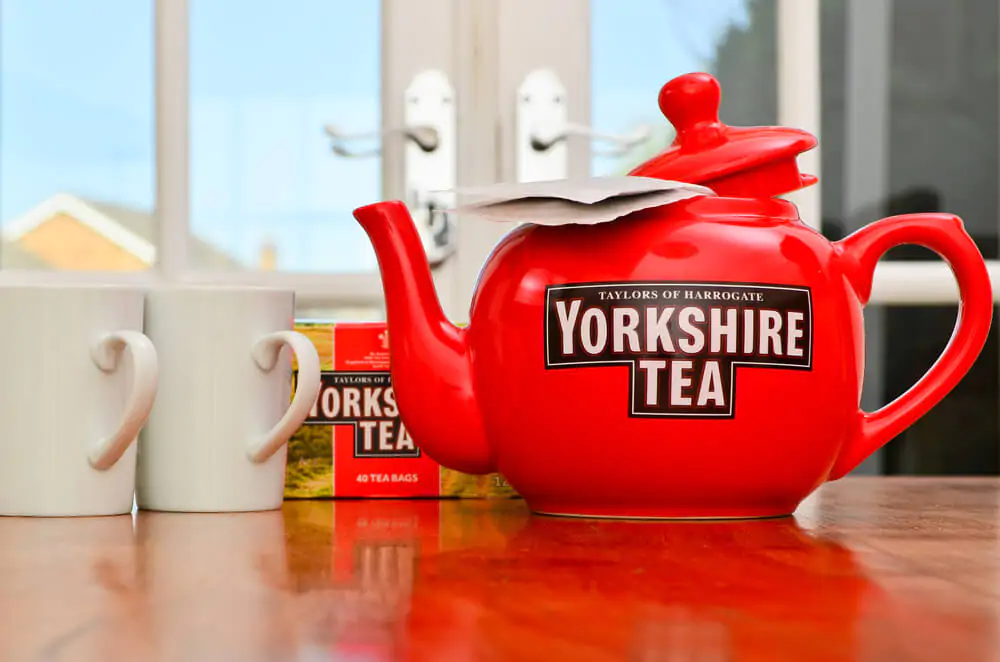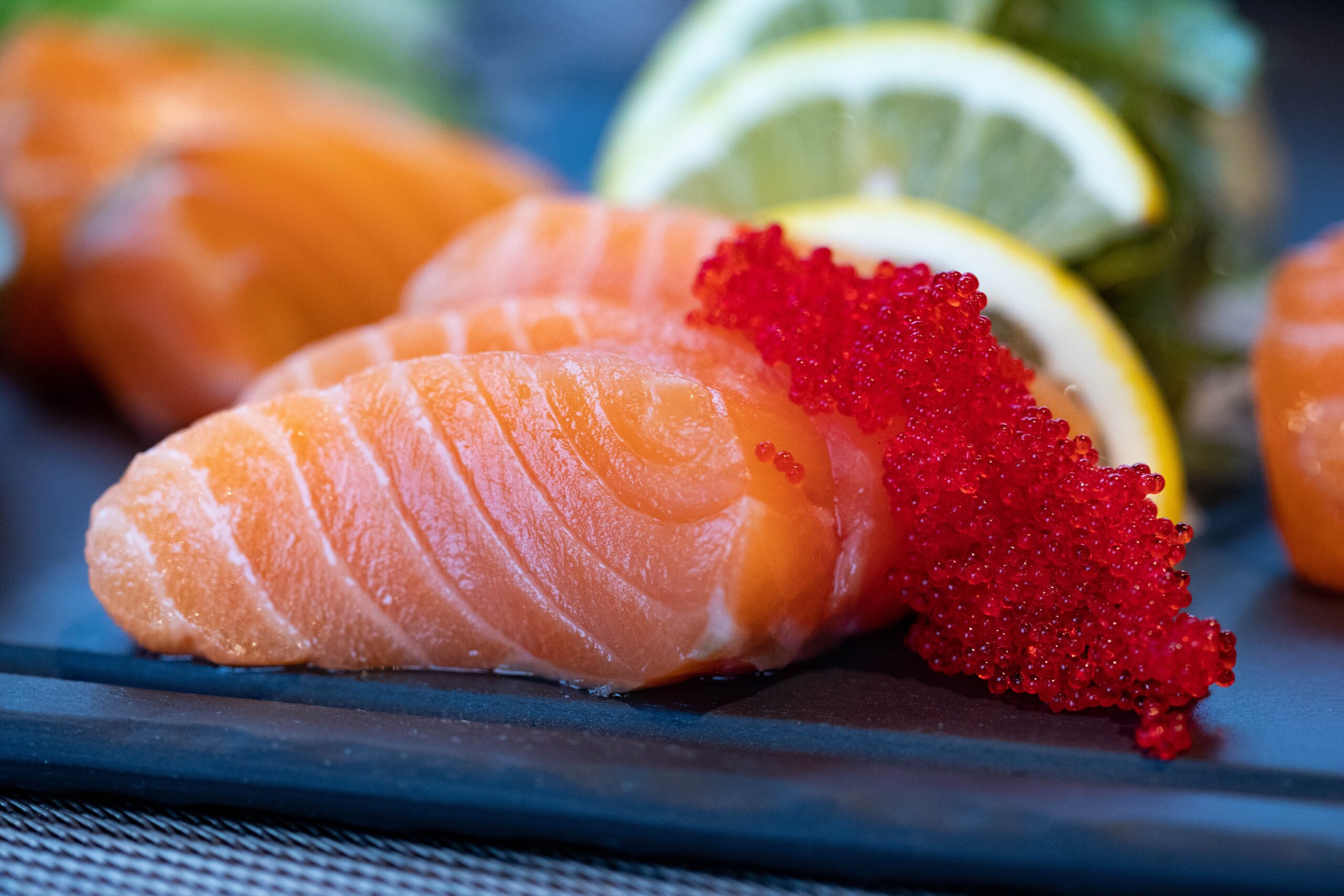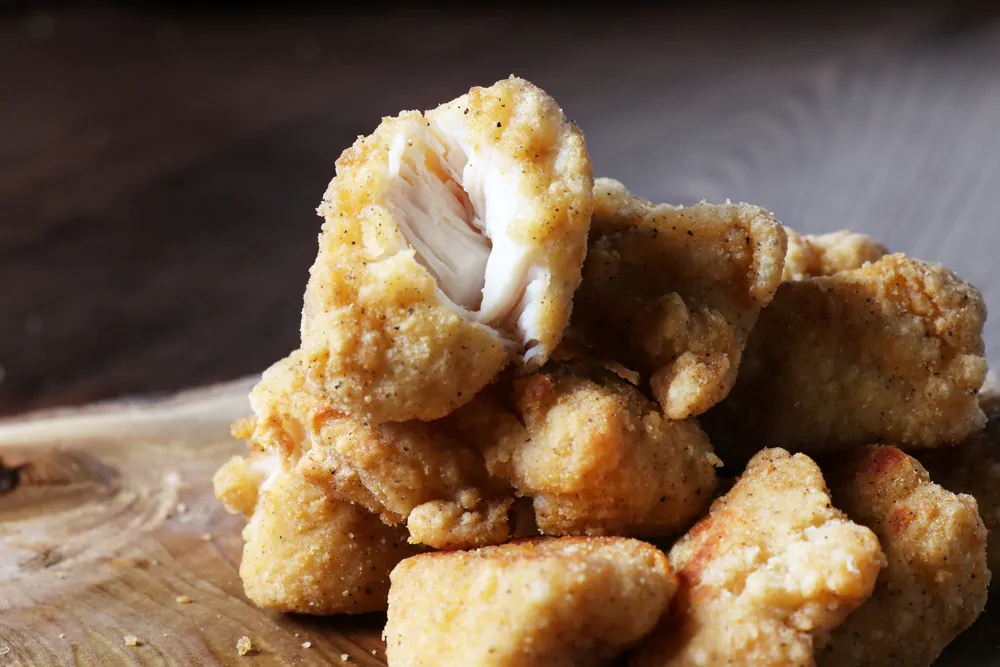Yorkshire Gold offers a rich complexity, full body, and a smooth texture that’s truly delightful. It’s like a cup of heaven, and all at a reasonable price. On the other hand, Yorkshire Red, while still quite enjoyable, presents a lighter body with a slightly more astringent quality. Its taste is more direct, accompanied by prominent nutty undertones. Additionally, the red variant has a darker hue compared to the gold option.
When it comes to enjoying a comforting cup of tea, the choice between various blends can greatly influence your experience. Yorkshire Tea, a well-regarded brand known for its quality and variety, offers two popular options: Yorkshire Red and Yorkshire Gold. While both hail from the same brand and share the essence of a classic black tea, they possess distinct characteristics that set them apart.
Here, you will exploring the differences between Yorkshire Red and Yorkshire Gold can provide insight into the unique flavors and qualities that each blend brings to your teacup.
| Aspect | Yorkshire Red | Yorkshire Gold |
| Blend Composition | carefully crafted with a blend of Assam, African, and Sri Lankan teas to create its robust, classic black tea flavor. | formulated using a selection of Assam, Rwandan, and Kenyan teas, resulting in a morerefined and indulgent taste profile. |
| Flavor Intensity | presents a strong, straightforward flavor, embodying the essence of traditional black | offers a smoother and well-roundedflavor, often noted for its hints of malt and caramel. |
| Sourcing Process | The Taylors of Harrogate meticulously taste over, 900 different cups of tea to ensure authenticity and consistency in the flavor of Yorkshire Red. | Yorkshire Gold’s tea buyers go through an exhaustive,process of tasting more than 1100 types of tea daily,ensuring a balanced blend for a luxurious taste. |
| Origins | doesn’t imply tea grown in Yorkshire.It’s named after the place where the blends are created – the Taylors of Harrogate in North Yorkshire. | Similar to Yorkshire Red, the name Yorkshire Golddoesn’t signify tea grown in Yorkshire. It’s named after the location where the meticulous blending afterprocess takes place. |
| Caramel & Malty Notes | tends to be more straightforward,it might have subtle malty notes | often praised for its balancedflavor, with distinct caramel and malty undertones |
| Best Consumption Time | Yorkshire Red’s bold taste is ideal for a morning kick-start or an afternoon pick-me-up. | Yorkshire Gold, due to its smoother and richer profile,is commonly enjoyed in the morning, perhaps with milk and sugar, to complement breakfast. |
| Tea Bag vs. Loose Leaf | predominantly available in tea bags, offering convenience and consistency. | offers both tea bags and loose-leafoptions, catering to both ease of use and richer taste preferences of different consumers. |
| Decaf Option | The caffeine content in regular tea typically ranges from 2% to 3%, while decaffeinated (decaf) tea contains approximately 0.2% caffeine. | 3.062g/100g |
| Unique Tea Flavors | Yorkshire Tea offers creative flavors like BiscuitBrew and Toast and Jam, adding a playful twist to the tea experience beyond traditional black tea. | It is full-bodied and has a malty flavor. |
| Price | Almost (15-16$) | ( 17-21$) |
Why Yorkshire Tea Is The Best?
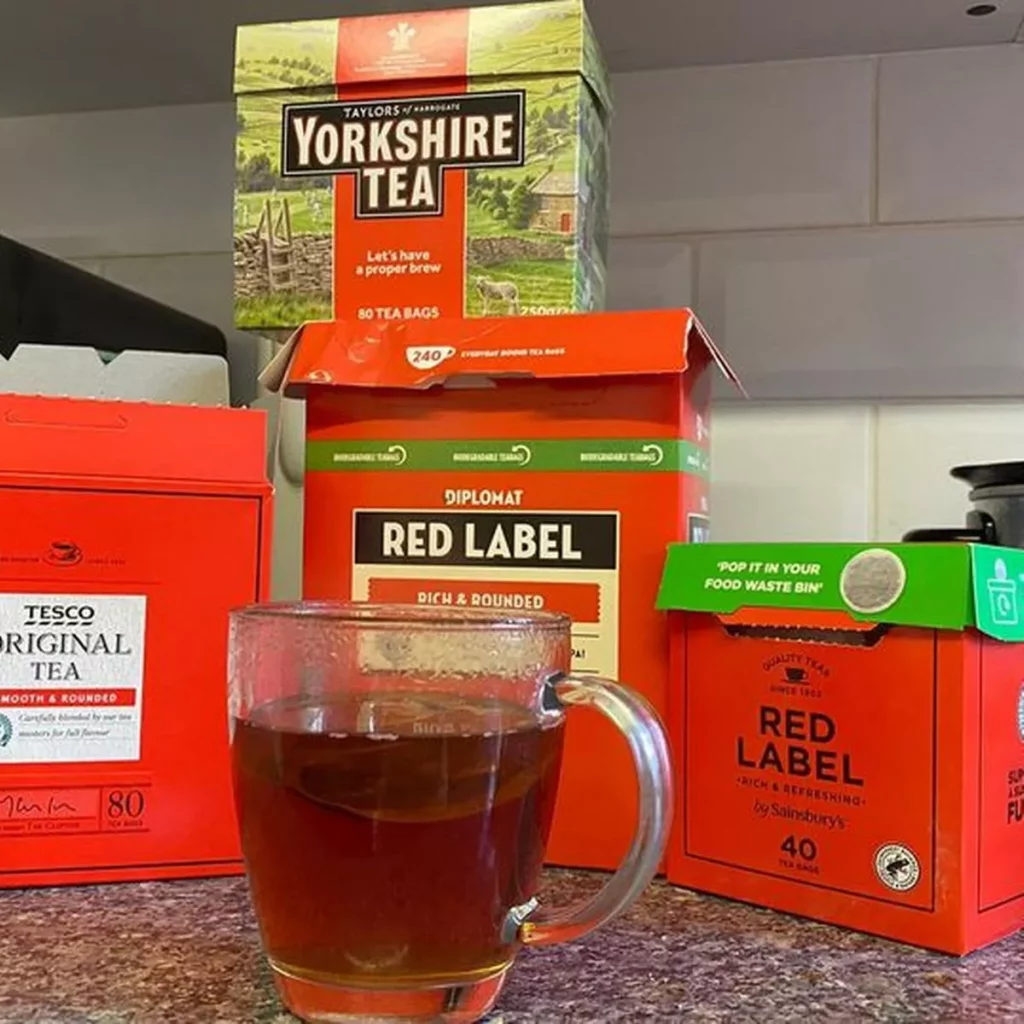
The Excellence Behind Yorkshire Tea’s Distinctive Flavor
Crafting a Remarkable Blend Through Global Tea Fusion
At the heart of Yorkshire Tea’s reputation as a premier tea brand lies its exceptional flavor. The distinct taste that has captured the palates of tea enthusiasts worldwide is a result of the meticulous crafting process undertaken by the Taylors of Harrogate. The key to this exceptional taste lies in the artful combination of teas sourced from diverse corners of the world.
A Global Journey in Pursuit of Perfection
Curating the Perfect Blend: A Labor of Taste and Expertise
Delving into the creation of Yorkshire Tea unveils a rigorous selection process that sets it apart from the rest. The Taylors of Harrogate embark on a journey of taste-testing numerous batches of Assam, Darjeeling, and Ceylon teas.
This intricate evaluation process serves as the foundation for the tea’s exquisite flavor profile, ensuring that only the most exceptional teas find their way into the blend.
Sustainability and Sip-Worthy Delight
An Echo-Friendly Choice for Conscientious Consumers
Yorkshire Tea’s appeal extends beyond its remarkable taste. In an era where sustainability is paramount, the brand takes a significant stride toward eco-friendliness. This commitment resonates with individuals who prioritize products sourced sustainably.
As a result, it stands as a preferred choice for those seeking not only a satisfying cup of tea but also a tea-drinking experience that aligns with ethical and environmental values.
Unveiling the Origins of ‘Yorkshire Tea’: A Name Beyond Geographical Boundaries
The nomenclature of tea often draws inspiration from its place of origin, a tradition prevalent with names like Kenyan tea and Rwandan tea. However, when it comes to tea blends, the nomenclature takes a creative twist. These amalgamations are often bestowed with imaginative titles since referring to the multitude of constituent teas individually would be impractical.
Consider the case of Russian tea, an amalgam of oolong, lapsang souchong, and keemun teas, or the ever-familiar English breakfast tea, a harmonious blend of black teas from diverse corners of the globe.
In line with this convention, Yorkshire Tea finds its identity as a blend of teas, dispelling the common misconception that its name signifies tea grown within Yorkshire.
Indeed, the moniker ‘Yorkshire Tea’ pays homage not to a geographical origin, but to the birthplace of its creation. A visit to the Taylors of Harrogate reveals that these exquisite blends have been meticulously crafted on the grounds of North Yorkshire since the late 19th century.
In essence, it encapsulates the heritage and legacy of the Taylors of Harrogate, a testament to their unwavering commitment to the art of tea blending that has flourished for generations within the charming landscapes of North Yorkshire.
How To Choose The Best Yorkshire Tea
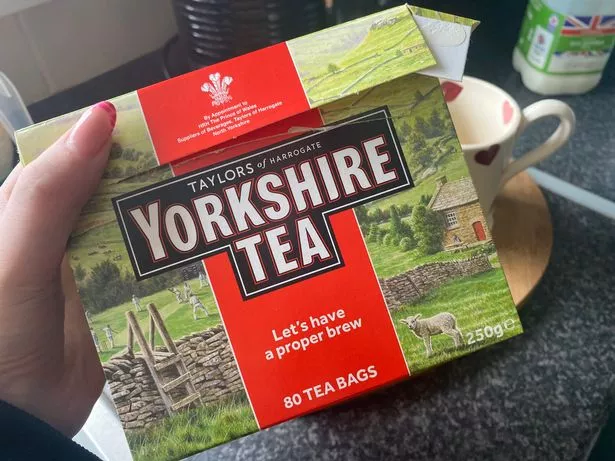
Flavor When considering your tea options, you have a range of choices in terms of flavor. You can opt for classic black tea varieties like Yorkshire Gold or Yorkshire Red, perfect for a rich and robust breakfast tea experience. On the other hand, if you’re feeling adventurous, there are unique flavor options like Toast and Jam and Biscuit Brew to explore.
Also, Keep in mind that not everyone may enjoy teas with creative flavors. If you have a diverse group of family members or frequently host guests with varying tea preferences, it might be wise to stick with classic black tea. It tends to be a crowd-pleaser among most individuals.
Moreover, Regular or Decaf Tea naturally contains caffeine, which can affect your choice based on when you like to enjoy your cup. For those who prefer tea in the evening or before bedtime, decaffeinated Yorkshire tea might be a suitable choice.
Further, Decaf tea is essentially tea from which the caffeine content has been removed, making it a great option for individuals who are sensitive to caffeine.
Tea Bag or Loose Leaf The debate between tea bags and loose leaf tea is a matter of personal preference. Some tea enthusiasts lean towards loose leaf tea due to its perceived richer flavor profile, and there’s some truth to this assertion.
Tea leaves in bags are often crushed, which can lead to a faster evaporation of essential oils and a slightly milder taste. However, well-established brands like Taylors of Harrogate maintain the quality of their tea bags.
Lastly, Tea bags offer convenience, requiring you to simply steep them in hot water, remove the bag after a few minutes, and enjoy. On the other hand, loose leaf tea demands careful measurement of tea and water, as well as more time spent in the brewing process.
FAQ
What are the different types of Yorkshire Tea?
Yorkshire Tea artfully combines tea varieties cultivated in India, Sri Lanka, and Kenya to craft a selection of eight distinct blends. These blends encompass Yorkshire Tea, Yorkshire Decaf, Yorkshire Hardwater (exclusive to the United Kingdom), Yorkshire Gold, Breakfast Brew, Bedtime Brew, Biscuit Brew, and Toast and Jam Brew.
Why is Yorkshire Gold tea so good?
The exceptional flavor profile of Yorkshire Gold originates from its meticulous combination of top-tier tea leaves. This exquisite blend harmonizes Assam tea leaves with those from East Africa and Rwanda, culminating in the distinguished and award-winning taste for which it is renowned.
How strong is Yorkshire Gold?
Renowned for its robustness, Yorkshire Gold is an excellent choice for a hearty breakfast tea. Crafted by blending exquisite teas sourced from countries such as India, Sri Lanka, and Africa, this tea variety is particularly well-suited for morning consumption. Its bold character makes it a delightful companion to milk and sugar. Enclosed within each English-style (tagless) tea bag is a precisely measured 3.125 grams of this exceptional tea blend.
Does Yorkshire Tea need milk?
Yes, We appreciate a touch of semi-skimmed or whole milk, but the way you enjoy your brew is a personal reflection of your taste. Whether you opt to add milk, sugar, honey, a hint of lemon, or simply savor it as is, the paramount aspect is to relish the experience.
Does Yorkshire Gold have caffeine?
Yes, Yorkshire Gold boasts a substantial and rich character, especially when you introduce a gentle whirl of whole milk (or for an even more indulgent experience, cream) along with a touch of sugar. Its caffeine content provides an awakening effect without inducing the jittery sensation often associated with coffee. The most notable factor, however, lies in its exceptional flavor profile that simply delights the senses.
Conclusion
In sumup, In the world of tea, nuances in flavor and characteristics can make all the difference in finding the perfect cup for your palate
Moreover, it’s evident that these two blends cater to a range of tastes. Yorkshire Red’s lighter body and nutty overtones offer a straightforward and slightly astringent profile, while Yorkshire Gold’s complexity, full-bodied nature, and smoothness deliver a truly indulgent experience.
In addition, Whether you’re seeking a brighter, brisker option or a rich and nuanced cup, both Yorkshire Red and Yorkshire Gold have something unique to offer, ensuring there’s a perfect blend for every tea enthusiast to savor.







